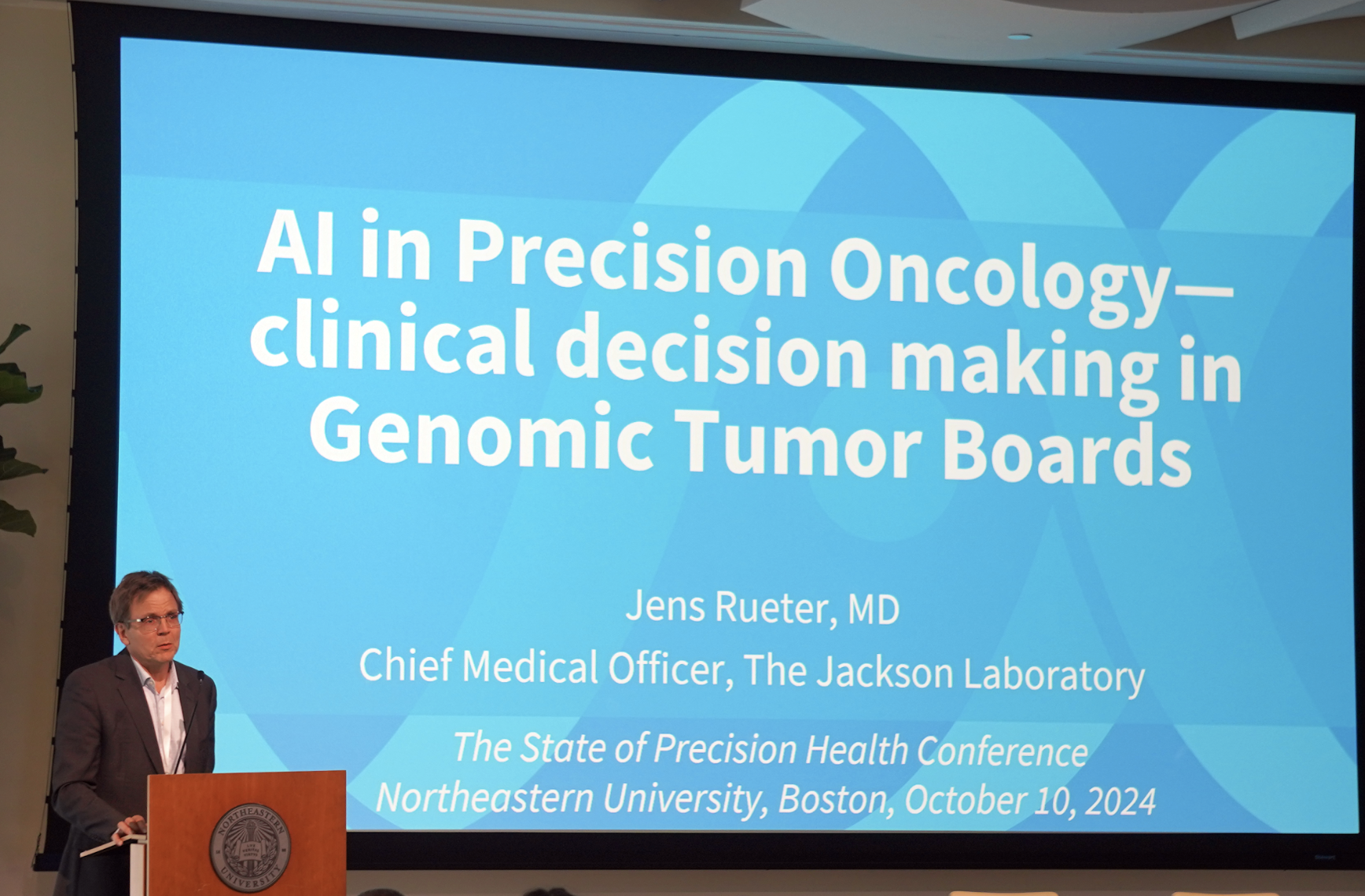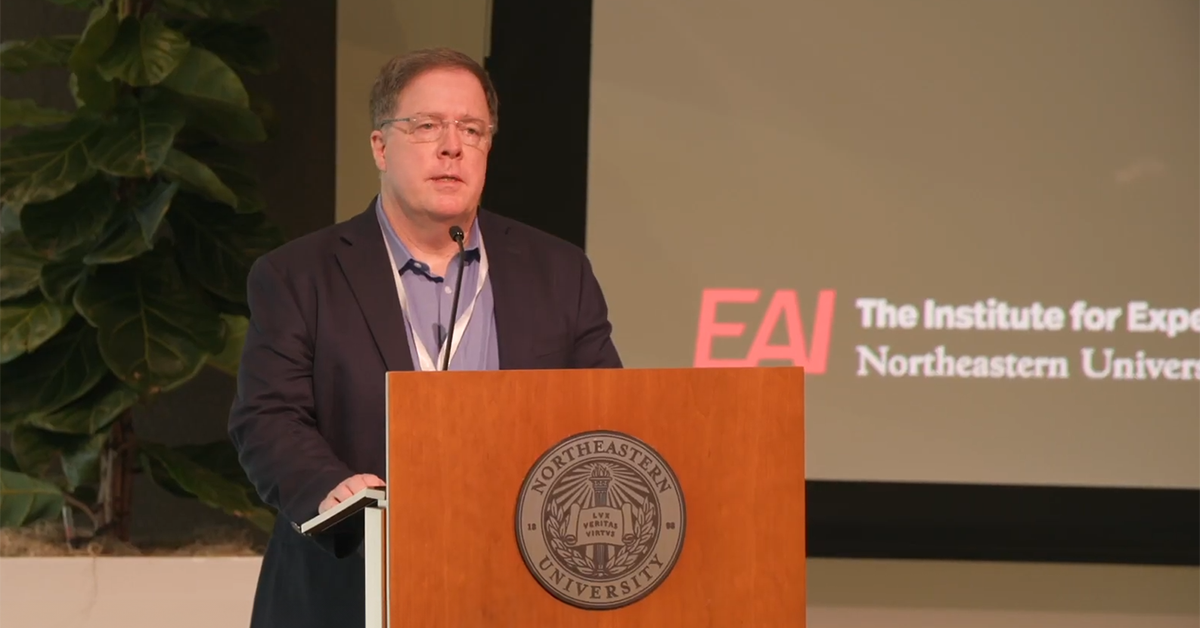Inside Intuit’s Quest to Leverage the “Transformative” Powers of AI
.png)
Some companies are only just starting to think about AI. Others have already begun to embed it in their operations. Then there’s Intuit, which has been investing in AI for years.
The financial technology company, which is known for products like TurboTax, QuickBooks, and Credit Karma, has a history of getting out in front of innovations, and it doesn’t intend for that to change with AI.
“ChatGPT literally broke the internet — it changed everything,” Intuit Senior Vice President and Chief Data Officer Ashok Srivastava said at our Leading With AI Responsibly business conference. “But this is a change we saw coming for quite a long time, and the investments we made, as you’ll see, align with that.”
Each day, Intuit makes about 65 billion machine learning predictions, according to Srivastava. That includes about 810 million AI-customer interactions per year. Data drives each of those predictions: For every small business customer, Intuit has about half-a-million customer and financial attributes to work with. That data makes Intuit well-positioned to build AI tools, and the company has combined it with a calculated strategy for innovation that puts humans in the driver’s seat.
“This isn't just about technology,” Srivastava said. “This is also about humans, and how humans and technology can evolve together in order to give humans the best experience possible.”
His talk offered an inside look at the many ways Intuit is using AI to expedite operations and empower workers. Along the way, Srivastava, who is also a professor at Stanford University, explained how other business executives should be thinking about getting the most out of the technology.
“How do you lead through a disruptive change?” asked Srivastava. “Our answer at Intuit is to make it a habit. Change is constant, and if you have that mindset, it becomes a very fun adventure.”
Intuit’s Race To Leverage AI
Intuit has over 18,000 employees and more than 100 million customers. But Srivastava describes it as a 40-year-old startup that gives everyone the ability to try new things and disrupt the system.
“[Our] transformation is happening organically as a platform strategy,” Srivastava said. “When I say platform strategy, what I mean is we’re building tools that allow developers from across the company to innovate with speed and scale. We’re hosting Global Engineering Days, and thousands of [our engineers] are developing new capabilities with data, analytics, and new product inventions.”
In keeping with that idea, Intuit developed a generative AI-based operating system, called GenOS, to help its developers build and deploy new features and products responsibly in an internal environment. The idea is to create an environment where developers can build AI applications with safeguards.
Intuit is also actively building AI applications for each of its main customer segments. For small businesses, that means using AI to track time, capital, and marketing performance. For Intuit’s self-employed customers, it’s about getting paid faster and more efficiently. For consumers, it’s about helping them get loans and insurance in ways that save them money.
“If you’re a QuickBooks customer and you use it for financial transaction categorization, know that there’s a model associated with your account and it’s getting updated on a regular basis, and there are millions of these models in operation,” Srivastava said.
One point of Intuit’s AI customer contact is Intuit Assist, a generative AI-powered financial assistant capable of giving intelligent, personalized recommendations to customers.
“It allows a person to ask questions, which is great, but much more importantly it allows work to be done for them with that person’s permission,” Srivastava explained. “That’s the shift we’re making. Not just Q&A, not just education, not just insight, but actually shifting the burden of work to the platform with your permission.”
Like many other companies, Intuit is also using AI in its customer service operations. If a customer is interacting with an AI chatbot and then wants to speak with a human, their data is transferred to what the company refers to as its virtual expert platform.
“When the customer gets connected to the human, all the relevant information is there,” Srivastava explained. “There’s a tremendous amount of AI in that process. Literally a year in advance, to the half-hour mark, we’re making predictions about how many people are going to call into our call centers. We’re also doing automatic routing and matchmaking, so that when the customer calls in, we know what they’re doing in the product in real time, and we make predictions about who the best expert is for their particular needs.”
In this way, Intuit’s AI works in the background, giving humans the right information to perform their best. That goes against proclamations that AI will eliminate the need for customer service agents, and it speaks to a key part of Intuit’s approach.
Humans in the Loop
Intuit’s leaders think about the company’s investments in generative AI in four ways, which Srivastava describes as customer obsession, platform mindset, mission-based teams, and development velocity, or removing roadblocks so people can do their job better.
“These aren’t technology areas — they’re oriented toward people,” Srivastava said. “Understanding and leveraging the people you have is incredibly important.”
For Intuit, AI empowers humans more than it replaces them.
“We’re not saying take AI and replace what humans do,” Srivastava said. “We’re saying take AI and help humans do what they do best. We’ve been investing in the augmented strategy for a long time.”
That approach aligns with our Institute’s human-centric AI philosophy. It’s one of the reasons Srivastava gave the talk.
“We have an unprecedented view of what’s happening in experiential AI at Northeastern, and I really feel the vision of [Institute Executive Director] Usama Fayyad and the many others who built the Institute is important for all of us to learn from and contribute to.”
As executives everywhere race to deploy AI technology, Srivastava hopes they do so with an eye toward maximizing AI’s benefits to society while guarding against its inherent risks.
“This isn’t just about technology,” Srivastava said. “It’s about humans and how humans and technology evolve together to give humans the very best experience possible.”
Watch Srivastava’s full talk here.




